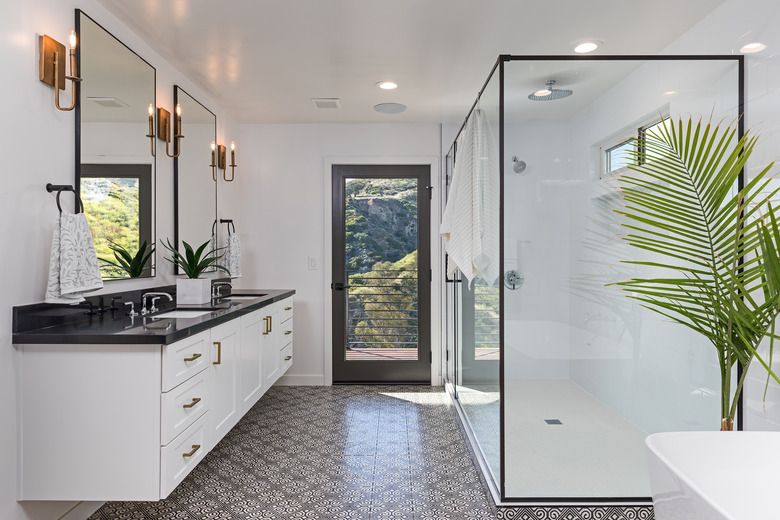What Kind Of Glue To Use On A Light Fixture?
We may receive a commission on purchases made from links.
If you would like to glue items onto a light fixture or glue the pieces of a light fixture together, you must use an adhesive that can hold up to the conditions. When choosing glue for use on a light fixture, you must be mindful of the coloring, the security of the items that you want to attach to the fixture and the heat that comes from the light. In addition, consider the materials you are trying to glue together.
Tip
When choosing glue to use on a light fixture, consider factors such as the glue's transparency and heat resistance as well as whether the product is formulated specifically for the materials you're gluing together.
Ensure a Good Hold
Ensure a Good Hold
Many glue options provide adequate hold for the components of a light fixture, though some do not. Basic household glues, such as white school glue or craft glue, won't keep a light fixture together for long. Glues listed as super glues, however, generally provide enough of a bond to keep objects in place on a light fixture. If you use glue from your home improvement stash, only use a glue expressly labeled for the material on the light fixture, such as metal or plastic, onto which you want to attach an object.
Look for Heat Resistance
Look for Heat Resistance
If you intend to use the glue on a light fixture near the fixture's bulbs or if the fixture gets hot to the touch when in use, you should use glue labeled as heat resistant. If you don't use heat-resistant glue, the glue may melt due to the temperature of the lights or metal and fail to hold the objects in place. Heat-resistant, light-resistant glues may also be labeled as "UV adhesives."
Consider Transparency Issues
Consider Transparency Issues
If you want to use glue on the part of the light fixture through which the light shines, you should consider transparent glue to prevent it from blocking the light. Clear-drying glues are widely available on the market and generally appear transparent in the container, making them easy to pick out. When using transparent glue to a light fixture in an area where you don't want it to show, apply the glue to the inside of the fixture if possible. Take down the light cover, for instance, and glue the side that faces the bulbs instead of gluing from the outside.
Consider the Materials
Consider the Materials
Consider the specific materials you are gluing. For example, you may be gluing a metal item to a metal light fixture, rubber to glass, or rubber to metal. Several manufacturers offer specific glue products for these types of applications. For example, Amazing Goop and MasterBond are both designed to glue metal to rubber. Permabond offers a wide array of glass adhesives, including Epoxy Glass Glue and Structural Acrylic Glass Glue.
Evaluate Glue Options
Evaluate Glue Options
Several glues meet the requirements of providing good hold, being heat-resistant and drying with a transparent finish. Gorilla Glue dries clear and is designed for heat-resistance up to 220 degrees, while competitor Super Glue makes epoxy glue that dries into a solid coating and holds up to 180 degrees. Neither glue can withstand hot temperatures over time though, so you may want to use glue specifically made for heat. You can find a selection of heat-resistant glues at most home improvement stores.
